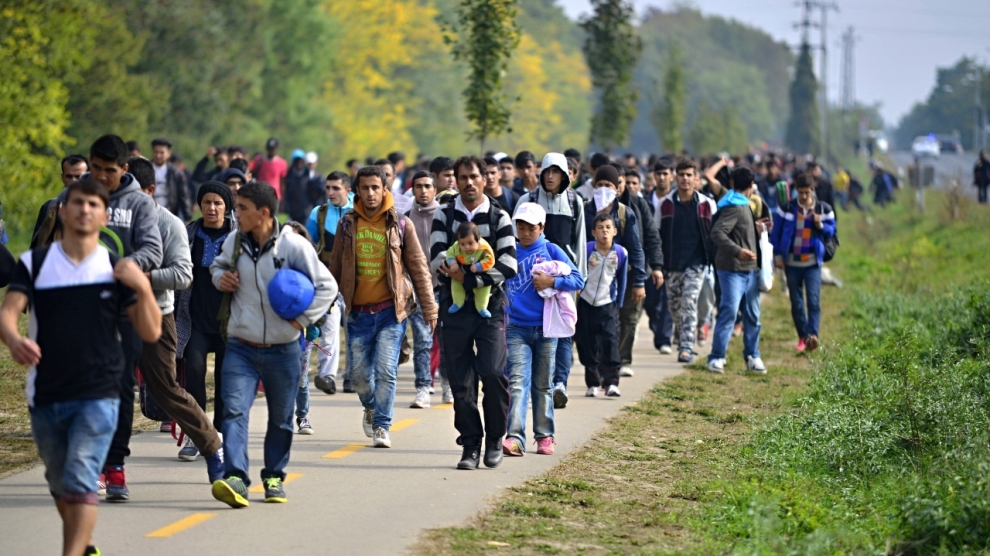Europe is facing a new migrant crisis following the decision of the Turkish president, Recep Tayyip Erdoğan, to allow migrants and refugees to leave Turkey and head for the European Union. Mr Erdoğan’s announcement, made last Friday and directly linked to recent fighting in Syria, has regional leaders worried.
Turkey is supporting some of the groups in the last Syrian rebel-held stronghold of Idlib, where fierce attacks by the Syrian regime, backed by Russia, have forced large numbers of people to flee.
Since then, clashes have erupted at the Greek border, prompting the Greek government to tighten border security and suspend the processing asylum applications. These clashes came after thousands of migrants headed for the border in a desperate bid to cross and continue on their way to the European Union.
Greek authorities have used tear gas and water cannons to prevent the crowds from crossing the border. Migrants have thrown rocks and other objects, and at least one Greek policeman has been injured.
The Greek government has said it will immediately return to Turkey anyone found crossing the border illegally.
This decision has been criticised by some in the international community.
“The Greek suspension of asylum applications represents a manifest breach of both European asylum law and international humanitarian law by creating an unprecedented mechanism that will likely condemn deserving asylum applicants to deportation and death,” said Alberto Alemanno, a professor of EU Law at HEC Paris.
Similar measures are now in place in Bulgaria as well. The country shares a 300 kilometre border with Turkey, although it has so far not seen large numbers of migrants attempting to enter.
Nevertheless, Bulgaria has said that it is ready to deploy around a thousand troops and military equipment to prevent migrant flows, the country’s defence minister Krassimir Karakachanov has said.
Amid fears of the spread of coronavirus (COVID-19), Hungary has decided to temporarily halt admission into transit centres in Tompa and Röszke, near the Serbian border.
“Iran is a hotspot for the coronavirus, and a great number of migrants come from that region. To protect the 321 people currently in the transit zones, we decided to not accept any more illegal migrants into the border centres until further notice,” said Hungarian Chief Security Advisor György Bakondi.
The border region of Serbia and Hungary has long been a problematic spot on the migrant route to Western Europe. Clashes between the police and migrants trying to cross the border have erupted intermittently ever since the start of the first migrant crisis in 2015.
Serbia has been a major hub for migrants on their route from the Middle East to the European Union.
Currently, there are around 4,400 people in 17 refugee centres in Serbia, according to the Serbian Refugee Commission.
Serbian Foreign Affairs Minister Ivica Dačić said that the country will continue to treat migrants fairly but won’t allow large numbers to remain stuck in the country.
Tensions in the country have risen of late, with a protest being held in Subotica on February 29.
Around 500 people gathered in Serbia’s northernmost city carrying placards with “Close the Borders” written on them.
Members belonging to an informal group called Citizens of Subotica United, which organised the protest via Facebook, said that the number of migrants is increasing and people no longer feel safe in the city.
At the Serbia-Croatia border region in Šid, there is an increased police presence following reports of migrants entering abandoned houses and causing damage.
In Croatia itself, Interior Minister Davor Božinović said on March 1 that Croatia is prepared for a potential new migrant wave but that for now there had not been an increase of arrivals along the Western Balkans route.
EU Council President Charles Mitchell and EU Commission President Ursula von der Leyen will visit the Turkish-Greek border on March 3, accompanied by Greek Prime Minister Kyriakos Mitsotakis.

